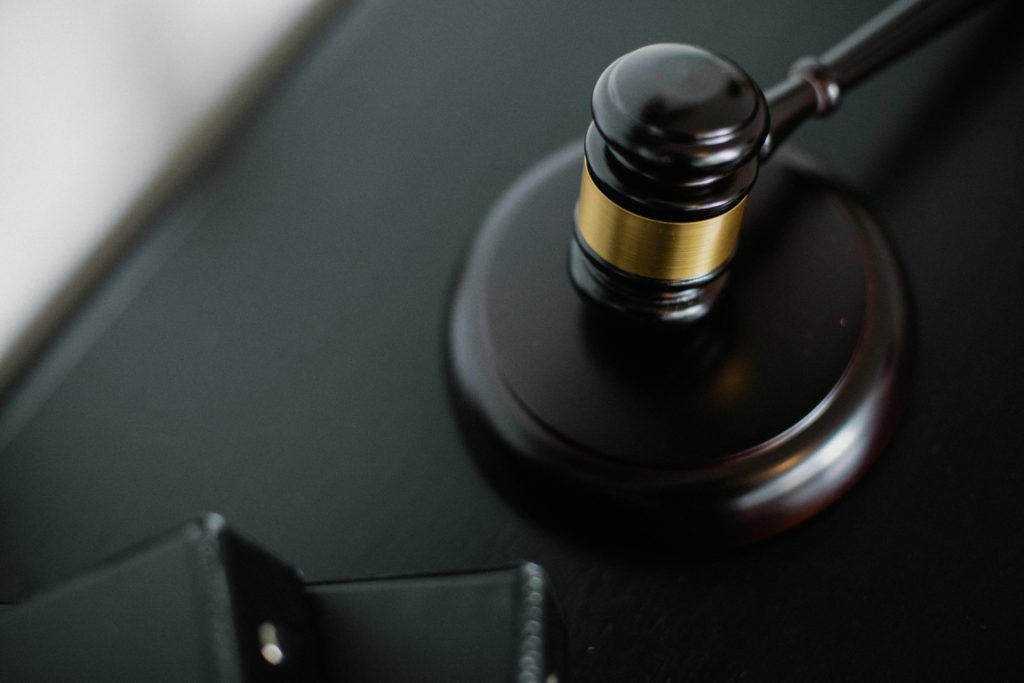UTAH MEDICAID FRAUD CONTROL UNIT
The Medicaid Fraud Control Unit (MFCU) investigates and prosecutes Medicaid fraud by providers of medical services, products, and drugs, including patient abuse and neglect. It lowers medical and drug costs for Utah consumers and employers by challenging fraudulent practices that result in overpayments to Medicaid. Cases range from local prosecutions of doctors and facilities that charge Medicaid for services that were not provided to participating in national lawsuits against drug companies that conspire to limit competition for generic drugs.
MISSION
To combat fraud committed by providers against the Medicaid program and protect vulnerable individuals from abuse, neglect, and exploitation.
JURISDICTION
In the late 1970s, the federal government began requiring all states that received Medicaid funding to have Medicaid Fraud Control Units (MFCUs). The Utah MFCU was founded in 1980 and, since that time, has focused on two missions:
- investigate and prosecute fraud committed by providers against the Medicaid program, and
- investigate and prosecute the abuse, neglect, and exploitation of vulnerable individuals (elderly, disabled, Medicaid recipients, etc.)
Due to confusion about the second half of the mission, the MFCU underwent a name revision in 2022 and is now known as the Medicaid Fraud and Patient Abuse Division (serving as the MFCU for the State of Utah). This better describes the division’s focus while acknowledging that Utah maintains an MFCU and is eligible for federal funding.
Medicaid Fraud and Patient Abuse Division
FREQUENTLY ASKED QUESTIONS
What is Medicaid?
Medicaid was established in 1965 by Title XIX of the Social Security Act. Utah implemented its Medicaid program in 1966, which, at the time, focused on acute and long-term care. Today, Utah Medicaid provides coverage for physical health, behavioral health, and dental services, as well as long-term services and support.
Medicaid operates as a partnership program between the federal and state governments. Currently, the federal government shares financial responsibility by matching state costs with federal dollars. Federal requirements outline who and what must be covered in each Medicaid program, and then states can tailor programs to meet state-specific needs. Medicaid contributes significantly to the financing of the U.S. healthcare system, supporting local public health infrastructure, hospitals, mental health centers, at-home care, community clinics, nursing homes, physicians, and many other professions. Today, Medicaid is the nation’s single largest healthcare insurer, covering approximately 71.2 million people in the United States in 2016 – more than 400,000 of whom live in Utah.
What is a Medicaid Fraud Control Unit?
The Social Security Act (SSA) requires each State to effectively operate a Medicaid Fraud Control Unit (MFCU). In Utah, the Medicaid Fraud and Patient Abuse Division, Utah Attorney General’s Office, serves as the MFCU. The function of an MFCU is to investigate and prosecute Medicaid provider fraud and patient abuse, neglect, and exploitation.
Each MFCU receives a federal grant award equivalent to 90 percent of total expenditures for new Units and 75 percent for all other Units. MFCU staff review referrals of possible fraud and patient abuse, neglect, or exploitation to determine the potential for criminal prosecution and/or civil action. If the Unit accepts a referral for investigation, the case may result in various possible outcomes. Criminal prosecutions may result in convictions, and civil actions may result in civil settlements or judgments. Both criminal prosecutions and civil actions may include the assessment of monetary recoveries.
What is Medicaid Fraud?
Examples of Medicaid Fraud include:
- Billing for Services Not Rendered: A provider bills Medicaid for a procedure or service that was not actually provided.
- Billing for Up-Coded Services: A provider misrepresents the diagnosis and symptoms on patient records or selects higher-paying procedure codes to obtain greater reimbursement than allowed.
- Billing for Uncovered Services: A provider bills Medicaid for a service that requires the use of licensed or certified personnel but uses unqualified staff.
- Billing Multiple Claims: A provider submits bills to Medicaid multiple times for the same procedure or service.
- Drug Substitution: A pharmacist fills a recipient’s prescription with a generic drug but bills Medicaid for a higher-cost brand-name drug.
- Kickbacks: A provider offers or pays a kickback to induce someone to refer Medicaid recipients to that provider as patients or clients. Examples of kickbacks include cash, vacations, and gifts.
- Supplemental Charges: A provider charges a Medicaid recipient for a service that is covered by Medicaid and should be billed to Medicaid. The provider then charges the recipient the difference between the provider’s usual fee and what Medicaid pays.
- Inflating the Usual and Customary Charges: A provider might inflate the cost of the procedure, service, or goods provided by charging Medicaid more than usual and customary charges for the same product or service billed to other insurers and the public.
- Opioid Seeking Behavior: A Medicaid recipient who misrepresents or falsely claims a medical condition to obtain opioids from a health care provider.
What are Resident Abuse, Neglect, and Financial Exploitation?
Resident abuse or neglect is any action or failure to act that causes unjustifiable harm to a healthcare facility resident. Abuse or neglect may include any or all of the following:
- Physically assaulting a resident
- Withholding food
- Failing to provide necessary care
- Failing to provide medical treatment or medications
- Taking a vulnerable adult’s money or assets
The Medicaid Fraud and Patient Abuse Division investigates reports of abuse, neglect, and exploitation of a vulnerable adult or child in any residential healthcare setting, including hospitals, nursing homes, assisted living facilities, and Medicaid recipients in private homes.
Who is a Caretaker?
Caretaker means any person, entity, corporation, or public institution that assumes the responsibility to provide a vulnerable adult with care, food, shelter, clothing, supervision, medical or other healthcare, or other necessities.
What is Neglect?
Neglect means failure of a caretaker to provide nutrition, clothing, shelter, supervision, personal care, or dental or other health care, or failure to provide protection from health and safety hazards or maltreatment; failure of a caretaker to provide care to a vulnerable adult in a timely manner and with the degree of care that a reasonable person in a like position would exercise; a pattern of conduct by a caretaker, without the vulnerable adult’s informed consent, resulting in deprivation of food, water, medication, health care, shelter, cooling, heating, or other services necessary to maintain the vulnerable adult’s wellbeing; intentional failure by a caretaker to carry out a prescribed treatment plan that results or could result in physical injury or physical harm; or abandonment by a caretaker.
What is Abuse?
Abuse is attempting to cause harm, intentionally or knowingly causing harm, or intentionally or knowingly placing another in fear of imminent harm; causing physical injury by knowing or intentional acts or omissions; unreasonable or inappropriate use of physical restraint, medication, or isolation that causes or is likely to cause harm to a vulnerable adult that is in conflict with a physician’s orders or used as an unauthorized substitute for treatment, unless that conduct furthers the health and safety of the adult; or deprivation of life-sustaining treatment, except as provided in Utah Code Title 75, Chapter 2a, Advance Health Care Directive Act; or when informed consent has been obtained.
What is Exploitation?
There are various types of exploitation, as follows:
- Personal Dignity Exploitation: A caretaker of a vulnerable adult commits the offense of personal dignity exploitation of the vulnerable adult if the caretaker intentionally, knowingly, or recklessly creates, transmits, or displays a photographic or electronic image or recording of the vulnerable adult: to which creation, transmission, or display a reasonable person would not consent; and that shows the vulnerable adult’s unclothed breasts, buttocks, anus, genitals, or pubic area; that displays the clothed area of only the vulnerable adult’s breasts, buttocks, anus, genitals, or pubic area; or that shows the vulnerable adult engaged in conduct that is harmful to the mental or physical health or safety of the vulnerable adult; or causes the vulnerable adult to participate in an act that is highly offensive or demeaning to the vulnerable adult in which a reasonable person would not participate; or that is harmful to the mental or physical health or safety of the vulnerable adult.
- Financial Exploitation: When the person is in a position of trust and confidence, or has a business relationship, with the vulnerable adult or has undue influence over the vulnerable adult and knowingly, by deception or intimidation, obtains or uses, or endeavors to obtain or use, the vulnerable adult’s funds, credit, assets, or other property with the intent to temporarily or permanently deprive the vulnerable adult of the use, benefit, or possession of the adult’s property, for the benefit of someone other than the vulnerable adult; knows or should know that the vulnerable adult lacks the capacity to consent, and obtains or uses, or endeavors to obtain or use, or assists another in obtaining or using or endeavoring to obtain or use, the vulnerable adult’s funds, assets, or property with the intent to temporarily or permanently deprive the vulnerable adult of the use, benefit, or possession of the vulnerable adult’s property for the benefit of someone other than the vulnerable adult; unjustly or improperly uses or manages the resources of the vulnerable adult for the profit or advantage of someone other than the vulnerable adult; unjustly or improperly uses a vulnerable adult’s power of attorney or guardianship for the profit or advantage of someone other than the vulnerable adult; or involves a vulnerable adult who lacks the capacity to consent.
- Sexual Exploitation: A person is guilty of sexual exploitation of a vulnerable adult if the person knowingly produces, possesses, or possesses with intent to distribute material that the person knows is vulnerable adult pornography or intentionally distributes or views material that the person knows is vulnerable adult pornography; and the vulnerable adult who appears in, or is depicted in, the vulnerable adult pornography lacks the capacity to consent to the conduct; or is a vulnerable adult’s legal guardian and knowingly consents to, or permits the vulnerable adult to be, sexually exploited.
What is Medicaid Provider Fraud?
Most healthcare providers are honest and provide quality services. Provider fraud still costs Medicaid millions of dollars each year. Medicaid fraud hurts taxpayers by diverting state funds from their intended purpose. Medicaid fraud hurts participants by limiting the funds available for their medical needs.
Medicaid fraud involves the knowing, intentional, or reckless use of a false statement, a misrepresentation, or the failure to disclose a material fact in providing medical assistance in the Medicaid program. Depending on the cumulative loss to the Medicaid program, Medicaid fraud can be a misdemeanor or a felony.
Does the Medicaid Fraud and Patient Abuse Division Handle Concerns Related to Medical Benefits?
The Medicaid Fraud and Patient Abuse Division only investigates Medicaid recipient fraud if it is committed in conjunction with provider fraud or fraud associated with opioid-seeking behavior. The Utah Department of Workforce Services investigates fraud committed by those who apply for State benefits, such as Medicaid, SNAP (food stamps), childcare, and other financial fraud.
Does the Medicaid Fraud and Patient Abuse Division Investigate or Prosecute Medicare Fraud?
Medicare is a federally administered health insurance program for individuals aged 65 or older, individuals receiving Social Security Disability Insurance, or individuals with End-Stage Renal Disease. The Medicaid Fraud and Patient Abuse Division only investigates Medicare fraud if the case has a clear nexus to Medicaid. These cases are usually investigated jointly with the U.S. Department of Health and Human Services, Office of the Inspector General. You can report Medicare fraud by calling 1-800-MEDICARE (1-800-633-4227), 1-800 HHS-TIPS (1-800-447-8477), TTY 1-800-337-4950, or by visiting the Medicare.gov website.
What are Examples of Common Fraud Schemes?
There is no single example of Medicaid fraud. Medicaid fraud can include some medical services or no service at all. Typical fraud schemes include unnecessarily increased costs, the overuse of resources, or inaccurate payments. Here are some common schemes used by criminals who take money from the program:
- Billing for medical goods or services that were not provided
- Paying or accepting a “kickback” in exchange for a medical referral
- Concealing ownership in a related company
- Using false credentials
- Billing twice for the exact same service or item
- Billing Medicaid and the participant for the same service or item
- Billing a more expensive service than the one provided
- Prescribing or providing an unnecessary service
- Forging patient records or service documentation
- Billing for name-brand medications and providing generics
How Can I Protect Myself and the Medicaid Program?
Medicaid participants can help prevent fraud by staying alert and protecting their information. Examples of ways to protect yourself include:
- Regularly review your medical bills to ensure charges and dates are accurate
- Be suspicious of anyone offering free tests in exchange for your Medicaid number
- Only share your Medicaid number, records, and other information with your medical provider
- Don’t consent to or ask for unneeded medical treatment(s)
- Don’t sign blank medical forms
How Do I Report Suspected Abuse, Neglect, or Exploitation of an Individual in a Residential Care Facility?
Every citizen has an obligation to report abuse, neglect, and exploitation if they know or have reason to believe that a vulnerable adult is being abused, neglected, exploited, intimidated, or abandoned. Reports must be made to law enforcement or the Utah Department of Human Services, Adult Protective Services.
You can report vulnerable adult abuse by calling Adult Protective Services at 1-800-371-7897. To get more information or submit a report online, click this link.
In case of an emergency, call 911.
What are the Signs and Symptoms of Elder Abuse?
There are various forms of abuse. Awareness of potential signs and symptoms makes it possible to detect and report abuse, as follows:
- Physical abuse
- Bruises, abrasions, welts, lacerations, or rope marks
- Head trauma and/or bone fractures
- Open wounds, cuts, punctures, untreated injuries in various stages of healing
- Sprains, dislocations, and internal injuries/bleeding
- Bite, strangulation, burn marks, or patterns of injury
- Falls, including broken eyeglasses or frames
- Physical indicia of punishment, including evidence of physical restraints
- Medication overdose or chemical restraints
- Sudden behavior changes
- Sexual abuse
- Bruises, abrasions, or lacerations around the breasts or genital area
- Unexplained sexually transmitted disease or genital infection
- Unexplained vaginal or anal bleeding or incontinence
- Increased anxiety or depressive symptoms
- Sleep disturbances, agitation, or restlessness
- Financial abuse
- Sudden changes in bank account or banking practices, including an unexplained withdrawal of large sums of money or the addition of signatories to an older person’s bank signature card
- Abrupt changes to a will or other financial documents
- Unexplained disappearance of funds or valuable possessions, or sudden transfer of assets
- Substandard care provision, unpaid bills, or eviction proceedings
- The provision of unnecessary services
- Depression or anxiety
- Evidence of poor financial decision making
- Malnutrition
- Neglect
- Dehydration or malnutrition
- Untreated bed sores
- Poor personal hygiene
- Unattended or untreated health problems
- Unsafe living conditions
- Unsanitary living conditions
What Are My Duties if I Suspect Elder Abuse?
Utah law requires anyone who has reason to believe that a vulnerable adult or child is, or has been, the subject of abuse, neglect, or exploitation to immediately report the matter as follows:
- Report abuse of vulnerable adults to local law enforcement or Adult Protective Services at 1-800-371-7897 or https://daas.utah.gov/adult-protective-services/
- Report abuse of children to local law enforcement or the Division of Child and Family Services at 1-855-323-3237 or http://dcfs.utah.gov/services/child-protective-services/
FRAUD
To report Medicaid Fraud, click here.
For Abuse, Neglect, and Exploitation Referrals, click here.

MFCU PARTNERS
Utah Adult Protective Services (APS)
The Utah Department of Adult Protective Services is tasked with investigating all incidents of abuse, neglect, and exploitation of vulnerable adults while protecting those individuals from further harm. “Vulnerable Adult” means an elderly adult, or a dependent adult, who has a mental or physical impairment that substantially affects that individual’s ability to:
- Provide personal protection;
- Provide necessities such as food, shelter, clothing, or medical or other health care;
- Obtain services necessary for health, safety, or welfare;
- Carry out the activities of daily living;
- Manage the adult’s own resources; or
- Comprehend the nature and consequences of remaining in a situation of abuse, neglect, or exploitation.
Individuals with knowledge of Abuse, Neglect, or Exploitation of a Vulnerable Adult are REQUIRED by Utah State Law to report to APS. To make a report, click this link.
Utah Department of Child and Family Protection Services (DCFS)
The mission of the DCFS is to keep children safe from abuse and neglect and provide domestic violence services by working with communities and strengthening families. Individuals with knowledge of abuse or neglect of a child are REQUIRED by Utah State Law to report to DCFS.
To report suspected child abuse or neglect, click this link.
Utah Office of Inspector General
The Utah Office of Inspector General (Utah OIG) is an independent government agency that oversees the Utah Medicaid program. This includes all programs, funding, and services associated directly or indirectly with Medicaid. To contact the Utah OIG, click this link.
If you have concerns about potential fraud committed against the Utah Medicaid Program, please contact the Medicaid Fraud and Patient Abuse Division directly or click this link.
United States Department of Health and Human Services – Office of Inspector General (HHS/OIG)
The United States Department of Health and Human Services’ Office of Inspector General is tasked with fighting waste, abuse, and fraud in many healthcare programs, including Medicare. If you suspect waste, abuse, or fraud within the Medicare program and want to file a report, click this link.
HHS/OIG Exclusions Database
The HHS/OIG can exclude individuals and entities from federally funded healthcare programs for various reasons, including a conviction for Medicare or Medicaid fraud. Those who are excluded can receive no payment from federal healthcare programs for any items or services they furnish, order, or prescribe. This includes those who provide health benefits funded directly or indirectly by the United States.
To look up an individual or entity for an exclusion, click this link.
Utah Department of Workforce Services
The Utah Department of Workforce Services investigates fraud committed by those who apply for State benefits, such as Medicaid, SNAP (food stamps), childcare, and other financial benefits. To contact DWS, click this link.
Utah Aging Services – Long-Term Care Ombudsman
The Long-Term Care Ombudsman advocates for the rights of residents of long-term care facilities to ensure and enhance the quality of life and care of residents.
To contact the Long-Term Care Ombudsman, click this link.

NEWS HIGHLIGHTS
Abuse, Neglect, and Exploitation of Vulnerable Individuals
Caregiver Pleads Guilty to Abuse or Neglect of a Vulnerable Adult
In February 2024, a caregiver pled guilty to Abuse or Neglect of a Vulnerable Adult after admitting to lying about circumstances surrounding the disappearance of an autistic patient. In July 2023, the vulnerable individual went missing while under the care of Ms. Vahai. People searched diligently along the Jordan River Parkway after Ms. Vahai said that was where he was last seen. An MFCU investigation discovered, however, that Ms. Vahai had lied about where and how the vulnerable individual went missing and that he had actually wandered off from the defendant’s home in Taylorsville. The disabled individual was found the following day, but the defendant’s actions had delayed this already dangerous, difficult situation.
Granddaughter Pleads Guilty to Exploitation of Her Elderly Grandfather
In June 2023, a Beaver County woman was sentenced after pleading guilty to exploitation of a vulnerable adult, a third-degree felony, for selling her grandfather’s home in California and then misusing the proceeds. MFCU agents found evidence that Ms. Ramirez used her grandfather’s money to buy a home in Beaver, did not put her grandfather’s name on the title, and eventually lost the home in foreclosure. Ms. Ramirez also transferred money from her grandfather’s accounts and spent his money on herself. The grandfather ended up in a facility, dependent on Medicaid, with no retirement funds left. At sentencing, Judge Allen-McIff described the defendant’s actions as despicable.
Eye Surgeon Pleads Guilty to Aggravated Assault of Multiple Patients
In March 2023, a Salt Lake County eye surgeon pled guilty to aggravated assault and a pattern of unlawful activity. DOPL had previously disciplined Dr. Wyatt for improper practices, which resulted in poor patient outcomes. After disciplinary actions in multiple states, Dr. Wyatt lost his surgical license. He continued, however, to perform operations that resulted in terrible outcomes. Some patients had to undergo additional procedures to solve problems, others experienced a partial loss of vision, and one even lost an eyeball. Dr. Wyatt pled guilty to two counts of third-degree unlawful/unprofessional conduct and two counts of third-degree aggravated assault and is currently serving his sentence in the Utah State Prison.
Fraud Committed Against the Medicaid Program
LPN Pled Guilty to Pattern of Unlawful Activity
In March 2024, a Washington County licensed practical nurse pled guilty to a pattern of unlawful activity and witness tampering. The Defendant called in prescriptions using the name of a local doctor, giving the pharmacy the impression that medications had been lawfully prescribed. This created multiple instances of identity fraud. The defendant then approached a witness, attempting to get him to sign a statement that was contrary to information previously submitted to law enforcement, leading to witness tampering.
Hospice Company Paid Over $1,000,000 to Settle False Claims Act Violations
In March 2023, following an in-depth investigation conducted by MFCU and HHS-OIG agents, Summit Hospice agreed to pay over $1,000,000 to resolve allegations that they had violated the False Claims Act by submitting claims to Medicare and Medicaid for non-covered services. The allegations included claims of billing for services that were not medically necessary and failure to document terminal illnesses. Hospice is a special service intended to comfort terminally ill patients, but Medicaid and Medicare fraud occurs when hospice services seek reimbursement for patients who are not terminally ill.
BROCHURE
To view the MFCU Brochure, click here.
AWARDS
To view various MFCU Awards, click here.

APPLICABLE STATUTES
Utah
Utah False Claims Act UCA § 26B-3-1101 et seq.
Abuse, Neglect or Exploitation of a Vulnerable Adult UCA § 76-5-111 et seq.
Unlawful Dealing of Property by a Fiduciary UCA § 76-6-513
Abuse or Neglect of a Child with a Disability UCA § 76-5-110
Endangerment of a Child or Vulnerable Adult UCA § 76-5-112.5
Reporting requirements UCA § 62A-3-305
Federal
False Claims Act 31 UCS § 3729
Health Care Fraud 18 USC § 1347
False Statements Relating to Health Care Matters 18 USC § 1035
NATIONAL TRENDS AND SETTLEMENTS
Coming soon…

